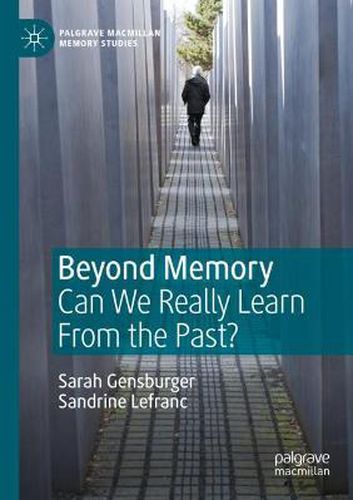Readings Newsletter
Become a Readings Member to make your shopping experience even easier.
Sign in or sign up for free!
You’re not far away from qualifying for FREE standard shipping within Australia
You’ve qualified for FREE standard shipping within Australia
The cart is loading…






This title is printed to order. This book may have been self-published. If so, we cannot guarantee the quality of the content. In the main most books will have gone through the editing process however some may not. We therefore suggest that you be aware of this before ordering this book. If in doubt check either the author or publisher’s details as we are unable to accept any returns unless they are faulty. Please contact us if you have any questions.
This book provides a fresh perspective on the familiar belief that memory policies are successful in building peaceful societies. Whether in a stable democracy or in the wake of a violent political conflict, this book argues that memory policies are unhelpful in preventing hate, genocide, and mass crimes. Since the 1990s, transmitting the memory of violent pasts has been utilised in attempts to foster tolerance and fight racism, hate and antisemitism. However, countries that invested in memory policies have overseen the rise of hate crimes and populisms instead of growing social cohesion. Breaking with the usual moralistic position, this book takes stock of this situation. Where do these memory policies come from? Whom do they serve? Can we make them more effective? In other words, can we really learn from the past? At a time when memory studies is blooming, this book questions the normative belief in the effects of memory.
$9.00 standard shipping within Australia
FREE standard shipping within Australia for orders over $100.00
Express & International shipping calculated at checkout
This title is printed to order. This book may have been self-published. If so, we cannot guarantee the quality of the content. In the main most books will have gone through the editing process however some may not. We therefore suggest that you be aware of this before ordering this book. If in doubt check either the author or publisher’s details as we are unable to accept any returns unless they are faulty. Please contact us if you have any questions.
This book provides a fresh perspective on the familiar belief that memory policies are successful in building peaceful societies. Whether in a stable democracy or in the wake of a violent political conflict, this book argues that memory policies are unhelpful in preventing hate, genocide, and mass crimes. Since the 1990s, transmitting the memory of violent pasts has been utilised in attempts to foster tolerance and fight racism, hate and antisemitism. However, countries that invested in memory policies have overseen the rise of hate crimes and populisms instead of growing social cohesion. Breaking with the usual moralistic position, this book takes stock of this situation. Where do these memory policies come from? Whom do they serve? Can we make them more effective? In other words, can we really learn from the past? At a time when memory studies is blooming, this book questions the normative belief in the effects of memory.